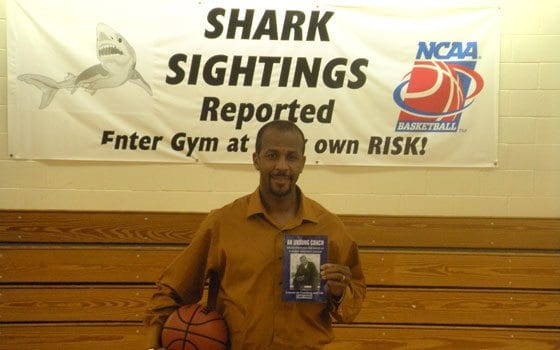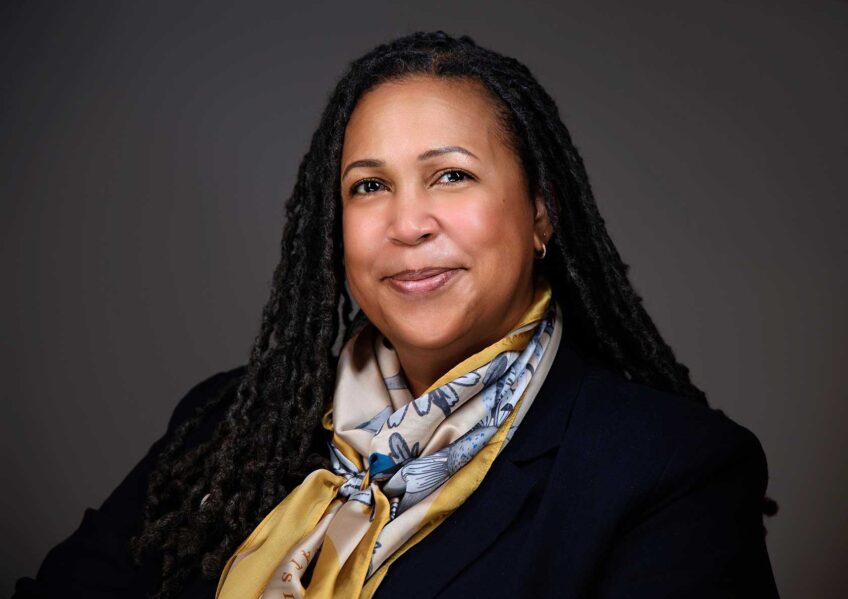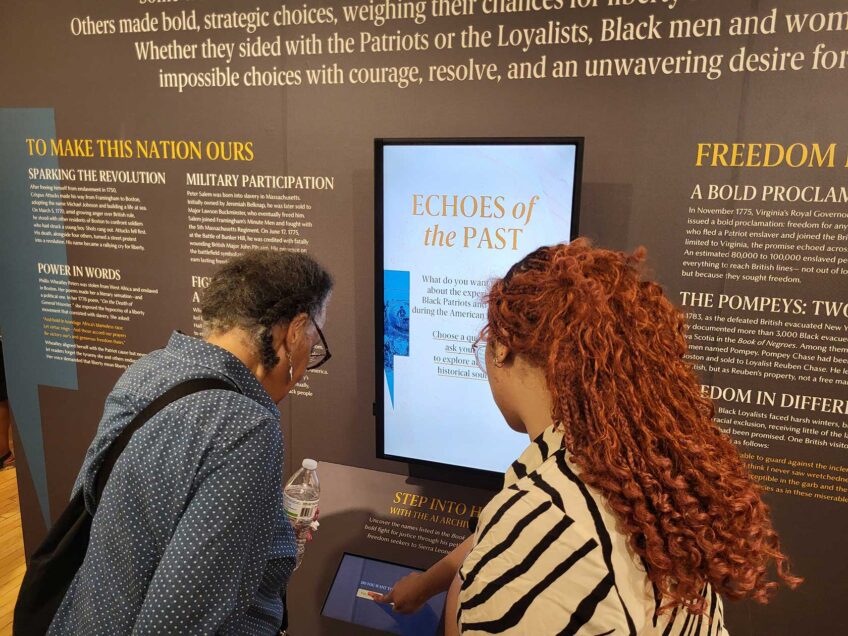

Author: Tony PricePrice poses with his new book, “An Unsung Coach Hears Through The Noise of a Black Athlete’s Dream: Lessons on Coaching and Life.”
Tony Price wants to reach young athletes — especially young black athletes.
In his new book, “An Unsung Coach Hears Through the Noise of a Black Athlete’s Dream: Lessons on Coaching and Life,” Price mines his own experience to show young black athletes that there is more to life than just sports.
Price is the assistant athletic director and head women’s basketball coach at Simmons College.
The book’s title says a lot about what Price wants to communicate. Price explains that “unsung” refers to those who remain in the background but play key roles, while “through the noise” emphasizes maintaining focus amid the confusing messages that often face black athletes as they become successful.
“Black athletes need to see beyond sports to how sports can help in life,” said Price.
At Simmons, the coach is sharing his knowledge on a local level, but hopes the book will allow him to bring his experiences to a broader audience.
Raised in Boston, Price grew up in Mission Hill and attended West Roxbury High School. As a boy, he played baseball until the age of 11, when he started to grow into his eventual 6-foot-6 basketball player’s frame.
“The taller I got, the more people pushed me toward basketball,” he said.
As he grew, so did his passion for the game. Because there were no basketball courts near his home, Price set up a makeshift basketball hoop using a milk crate and a lamp post. He would watch professional basketball and attempt to emulate their skills — “I wanted to be Dr. J,” he recalled.
Starring on the hardwood through high school, Price thought he had enough skill to potentially make a living through the game.
“I had a goal to provide a better life for my family,” Price explained.
But once he went to college, Price realized that the odds were against him becoming a professional player. Price attended Worcester State College and majored in media communications.
He left Worcester State after three standout years and headed overseas in pursuit of his hoop dreams. He played in semi-pro leagues and had a two-week overseas tryout for European basketball teams in Belgium, Iceland and Germany.
Price had some success overseas, but decided not to stay because of the cost and the cultural differences. Returning home, he opted to attend free-agent tryouts for various U.S. professional teams.
At these tryouts, Price said, he would often see the same faces from other open tryouts, including ex-professional players who had been cut and were trying to make a roster. Seeing the ex-pros made him realize how much of an uphill climb he faced.
“I came to understand that it would be difficult for me, at the bottom, to make it to the pros if someone who was at the pinnacle was trying to do the same thing,” said Price.
Price began to look for other ways to stay involved with the sport he loved, and started to consider coaching as a way to pass on his knowledge. He understood how the encouraging words of a coach could make a difference, recalling a moment from his youth when he played on a local summer basketball team.
A friend from Price’s sixth-grade class named Mike, who was the team’s best player, convinced him to join. Price spent the season coming off the bench, contributing mostly as a rebounder and never posing much of a scoring threat.
At the end of the season, the team’s coach treated the team to a pizza party and handed out awards. Price received the “unsung hero” award for working hard in practice and when he got into the game, and for never complaining about the fact that he didn’t score many points.
The recognition resonated with Price. He wanted to have a similar positive effect on the young people of his community, even though he never envisioned himself as a coach.
“My last year of college, a reporter for the school newspaper asked me if I wanted to coach, I said ‘no,’” said Price.
In 1993, Price would go to Malcolm X Park to watch some of the youth play organized summer league games, but was disappointed by the program’s lack of structure. “I’d watch these kids come to the park to play but have to wait hours because the times [of the games] were all messed up,” said Price.
That spurred Price to create his own league, the Academy Homes League, later renamed the Tony Price All-Star League. The league operated on Saturdays and Sundays, and featured six co-ed teams made up of local youth between the ages of 6 and 14.
Price drafted his friends and neighbors, all professional men and women, as volunteers to show the participants in the league that there were other options for careers beyond sports or entertainment. He used the league, which ran for five summers, as a platform to speak about good decision-making, as well as the importance of having role models in the community.
At the time, Price was working as an accounts receivable clerk for a publishing company, interning at WBZ, working at the Shelburne Community Center and attending night school to complete his degree.
“I had to be someone the kids could look up to,” he explained. “… I felt hypocritical telling the kids in the basketball league about the importance of school without a degree of my own.”
Price has also returned to college hoops, serving as the coach of the Simmons Sharks since 2000. The team is coming off a great season, during which Price led them to a 17-8 record, including an 8-4 mark in the Great Northeast Athletic Conference.
When asked why he coaches women, Price tells the story of a girl who lived in Academy Homes when he was starting his summer basketball league. Kandi would always ask him to play with the boys, claiming she was tough enough to hang with them. He allowed her to play, and she would make a point to thank him for the opportunity whenever she saw him.
“I realized that young black girls need to know that there are black men who care and support them without an ulterior motive,” said Price.
Price is excited for what his book can offer to young athletes. His core principle of TPC — Talent, Purpose and Call — speaks directly to young ballplayers, challenging them to “not limit themselves and not allow anyone to put them in a box,” he said.
“Strive to be the best you can, but don’t be closed off to other opportunities,” he added.
While “An Unsung Coach” is aimed at young athletes, Price said it includes messages for adults as well, such as “Define your own success.”
Price recognizes that the head coaching gig at Simmons College isn’t exactly on par with the top job at the University of North Carolina, but it still enables him to have an impact on the lives of kids.
Price’s excitement is evident.
“Remember why you’re in the game,” he stressed. “Play and coach out of love; success will follow naturally.”






